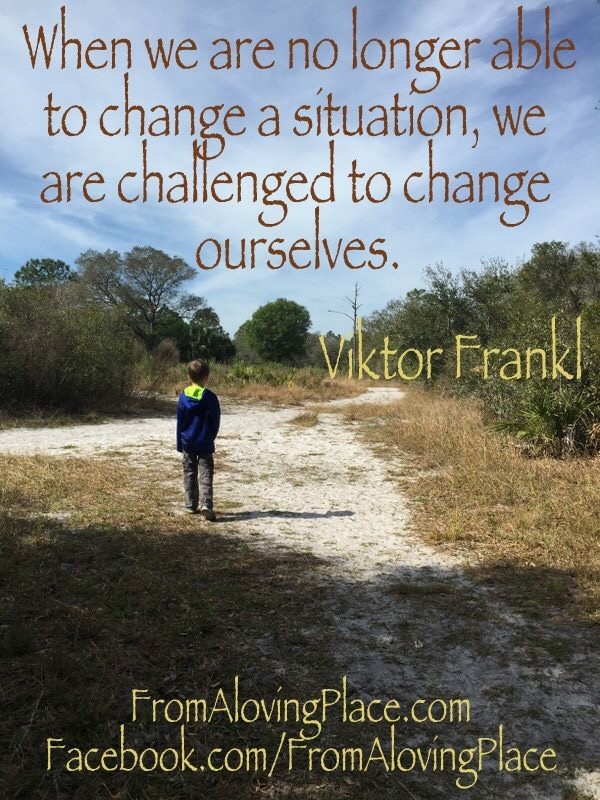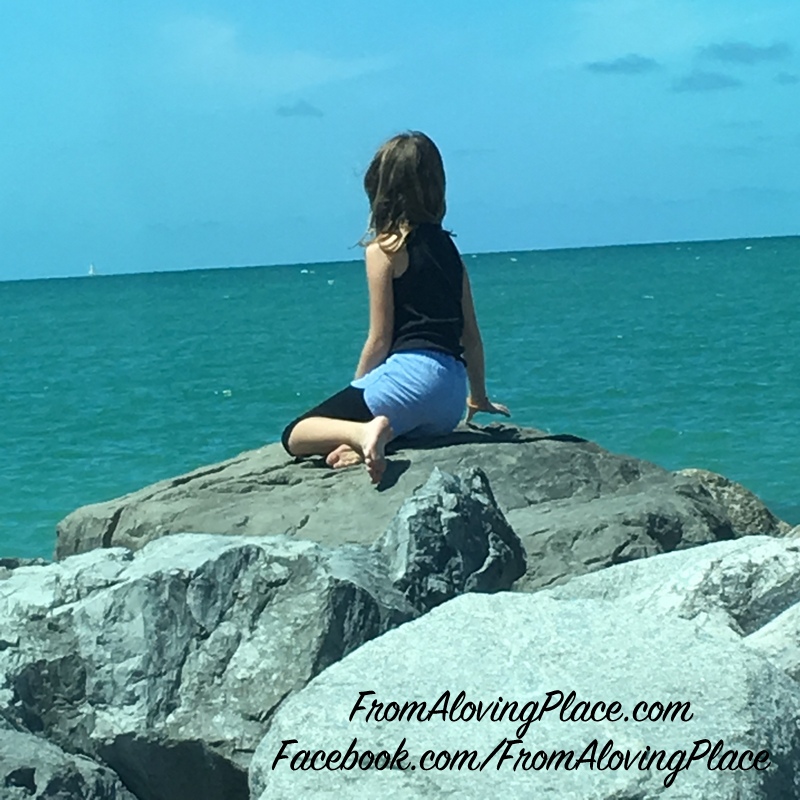Facing addiction from the outside is hard enough, but when children are involved it is a whole different ball game. In the past few years there has been a significant increase in grandparents taking the role of caretakers due to kids getting taken away from addicted parent(s) or one parent having to take on all the responsibilities as the other parent falls deep into the darkness of addiction. Families are breaking apart and struggling through the pain of watching their beloved family members completely disappear. I’ve experienced what it is like to lose people to this cunning and baffling disease, which is so incredibly powerful.
As outsiders looking in, we can say and think things like, “Just stop doing it!” It seems obvious, right? We can say, “Just limit yourself to two drinks.” We can go on and on with logical reasons for them to stop doing these harmful behaviors. When the person has kids, “Do it for your kids” and “Do it for your family.” We all wish those were the magic words to get them back on track. Sometimes, we go as far as trying to get the children to step-up and help straighten their parent(s) out. Imagine that weight on a child’s shoulders. What if their parent doesn’t clean up, is it now their fault? The problem is, a lot of kids take the responsibility very seriously and yes they blame themselves for their parent(s) addictions.
I used to use relationships as my addiction. People would ask the same kinds of questions. Most of us have something we use that is not so healthy. We can look at ourselves in order to help us feel compassion for others who are in a situation that they are not ready to change. I wasn’t able to break my toxic patterns in relationships until I was ready. Nothing anybody did, no matter how much sense it made could make me change. When I was ready, I stopped making excuses and changed. It wasn’t easy and I still slip into old harmful thought patterns. That connection really helps me to see addiction from a loving place. If it is that hard for me to change without using a chemical addictive substance, how hard is it for people who have been using prescription pills, alcohol, heroine, etc.? Those all have chemicals that change the way the brain functions.
My heart goes out to all families in this situation. I will tell you, it is full of lessons and we will rise up and we will make mistakes, because we all want what is best for our families. Admitting the truth about addiction is a very hard pill to swallow. Here are just a few things I have learned along the way:
Leave Children Out of Rescue Missions
An addict will only get help with their addiction when they are ready. There will be no excuses!!! They can’t be forced into it. When they are not ready, they will throw blame around like it is going out of style. If we are rescuers, we think we have the power to make it better. We think if we just tell them this, or do that, they will stop. No matter how hard any of us try, we will fail if we take on this responsibility. Children will take this defeat personally, so the best advice is to not get them involved in any attempts to make their parent different then they are. This is a challenge, because if we are fixers kids will see the behavior and try to mimic it. They will attempt to rescue and will be defeated, but the difference is if they are young, they only see what is concrete. This is so hard to watch children struggle through watching a parent disappearing. The effects are endless and they different issues can show up in their interactions with other family members, school, friends, and authority to name a few. BE AWARE and BE VIGILANT!
Children Need to Know: This is Not Their Fault
We have to remember to look at the situation through children’s eyes. They feel rejected and abandoned by the first male and/or female who are supposed to love them and that they are supposed to trust. If we didn’t have this experience, it is REALLY hard to imagine what that would feel like. The addict can’t accept love from others because they don’t love themselves. They are filled with so much unhealed shame that they try to cover it up with their addiction of choice. The negative energy that consumes them inside is projected out to the world. They focus their energy on all the negative things. When good things come in, they sabotage them, because deep down they feel unworthy of the happiness. They will create chaos to feed their addiction. It is a toxic cycle that can be passed down from generation to generation. In order to break it, we have to see it in how a child sees and treats him/herself.
Teaching children the importance of seeing their best qualities and forgiving themselves when they make mistakes will help them brake the harmful patterns of shame that can be passed down. We can help them to understand that nobody is perfect because we are all here to learn. Some of us will have harder lessons than others, but the good thing is, the harder the lesson we learn, the more opportunity we will have to help others through our experiences.
Make sure they are reminded that they are not to blame for their parent(s) actions and no amount of love they feel and show can change a person who is caught up in the cycle. A person must love her/himself in order to show love to others. If they don’t what they think is love becomes warped and manipulated. They will actually use it as a tool to hurt themselves and others unintentionally, because really they are just projecting the ugliness they feel inside.
Prayer can help release children from taking on the burden of fixing their parent (s). Just remember to let them know that prayer will help them when they are ready, because we all have free will. We are capable of resisting negativity or positivity. We have to do the footwork.
Prayer: Please help (fill in name) to feel the love of all the people who love him/her. Please help (fill in name) see their good heart and find the self-love and self-worth to release them from the grips of addiction. Please guide (fill in name) to find their way out of the darkness to be able to feel, accept, receive, and give love. Amen.

Keep the Focus on the Positive
The addict is an addict. We can’t fix that situation, so it does nothing for us to blame and resent them. It definitely doesn’t help to try to blame ourselves either. I know how hard this one sounds, but our resentment will rub off on the relationship we have with the children involved and it will not make for a healthy situation. If you have been honored to take a child out of a toxic situation and give them a loving one, keep it loving. Resentment is a toxic energy and it will play out in these children’s lives throughout their adulthood. We need to help them focus on what they do have instead of festering about what they don’t. When we focus on the positive, we attract better lives.
A gratitude jar is a great way to help kids find things daily to be grateful for. One day, they may realize how amazing their life is because of how strong the situation made them. We can’t control the addict, but we can control how we treat the people we love. By not blaming and shaming ourselves or others, we bring a positive light to a dark situation. This can make all the difference of how it will play out later down the line. For now, we are simply giving children the seeds of hope. If they keep watering them, they will grow strong.
Let Children Talk About How They Feel
Be open to let children talk, but be careful about how you respond. Listening and letting them know that you hear them is so important. Ask questions, and try to limit statements. Honor how they feel. DON’T tell them they shouldn’t feel a certain way. These are their feelings, try a response like, “Sorry you feel that way.” Let them know you understand, and if you’re sad about the situation tell them. Stick to the feeling. Don’t get caught up in a conversation that is way over a child’s head.
Sometimes things happen that we just don’t understand and it doesn’t make sense to us. This is a part of life and a lesson we all face all through adulthood. Think of it this way: When we are helping children through painful situations we are planting seeds for tools they can use for the rest of their lives. We all want to be heard. When a child feels rejected and abandoned they can feel defenseless in the world. If they learn that it is safe to express feelings and find healthy ways to cope with them, we are helping to break toxic shame cycles that come from suppressing feelings.
Repeat the emotion they are saying they feel or try to get them to name it. “I hear that you are feeling very hurt. Is that right?” By using this active listening tool we make it clear that we REALLY hear what they are saying.
Get Support
We can’t change the addict, but we can change the effect the addict has on us. Do the research. The only way to have a positive outcome in this situation is to work through it. Denial of the truth is your worst enemy. Get help! Give children a safe place to get their anger and fear out physically. If the child likes sports, find a way to get them involved. Coaches and teams have a positive impact on kids. Find extra-curricular activities that support the children’s well-being. Acting/ drama is a great tool for children to learn how to express themselves physically and emotionally. There are plenty of forms of physical exercise that can help: trampolines, punching bags, bike riding, yoga, etc. Find the right one for the child. Some kids love reading, research books that deal with this kind of issue.
Search out programs for yourself to help you navigate your way through the situation in as healthy a way as possible. There are 12-step programs for family member of addicts. These programs aren’t focused on changing the addict. Their focus is on the health and well-being of the person attending the group. The groups are centered on what we can control, and that is us and how we deal with the situation.
DON’T Force the Addict to Participate in Children’s Lives
This can be one of the hardest things. We want to fix the situation for everyone and we know that a child having her/his parent is so important. The temptation to try to fix it and make it right will be tempting and most good people will try to do this multiple times before they realize it’s devastating effects. We can love the addict all we want, but they will only get better when they are ready. Forcing them to be and do something they are not ready to do will hurt all parties involved. For the addict, it will add to the vicious shame, hate, guilt cycle and often times sends them further down the addiction path.
For the child, they will be rejected over and over never giving their wound time to heal. If we are not addicts it is hard to understand the power of addiction, and it is not personal to any other person than the addict. No matter who they blame, addiction is a path that person went down by making a lot of poor choices to run from their lives. It is their problem, but it doesn’t mean it doesn’t have negative effects on the whole family. If we try to force an addict to be there before they are ready, the broken promises will keep coming and the hurt will keep growing and festering.
Teaching a child the power of prayer for the parent to get the help they need or to feel love are great prayers. Just don’t keep opening the door for them to get hurt over and over. When and if the addict is ready, they will get the help they need and will work on fixing any broken relationships they feel are important. Trust that if they are not showing up for their kids, there is a good reason and it is in the best interest of the children. It just might be that the kids are Divinely protected. If you have a spiritual practice, trust in the Divine power of the Universe and that everything will work out exactly as it is supposed to for the highest good of all those involved.
Now, the effect of addiction to family members can range all over the map. We can feel like victims, martyrs, saviors, along with having extreme episodes of depression and anxiety. I’m not blaming the addict for this, but we find a coping mechanisms that fits our thought and behavior patterns. The good news is even if the addict stays active, we don’t have to keep getting effected by their choices. This takes work, because we have to break our own unhealthy habits. How do you know if you are healthy or not? It’s all in the reaction. Do you feel like it is your job to change the addict? NOT HEALTHY! Do you think you can change the addict? NOT HEALTHY! Do you feel like a victim to the addict? NOT HEALTHY. These are not easy things to look at on our own: therapy, spiritual practices, 12-step programs, books, seminars, etc. There are many necessary combinations between them and they are all paths to recovery. We are not alone, especially now. We have access to any kind of help we need, we just have to be willing to dig deep enough.

I’m not talking out of a place of unknowing. If you know about me and what I write about, you know AL-ANON (a 12-step program to help families of alcoholics) is apart of how I broke many of my unhealthy thought and behavior patterns. I have been through therapy; have a B.A. in Human Development, which was focused on psychology; and I took multiple courses dealing with addiction and solutions for people effected by it. I have also read countless books on self-help, spirituality, shame, and all variations that lead me to better thought and behavior patterns. My focus is on solutions. I have made plenty of mistakes in my attempts at bettering challenging situations, but I keep trying. I’m still learning daily.
My final piece of advice is be kind to yourself. Sometimes awareness can be painful. We may still freeze and feel lost at times. We may spend days crying and lose our cool out of frustration. Just because we understand things logically doesn’t mean the heart won’t feel the pain and the grief that comes from watching someone we love get lost in the throws of addiction. Keep praying, keep moving, and keep taking care of yourself. Don’t get lost in taking care of others. As they say in Al-Anon, we must put the oxygen masks on ourselves first in order to effectively help others.
With Love and Gratitude,
Rachael Wolff
www.facebook.com/FromALovingPlace


